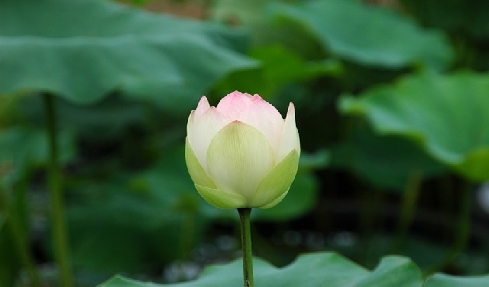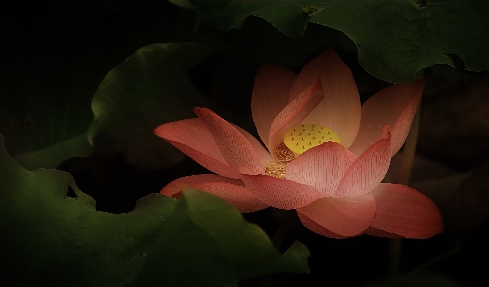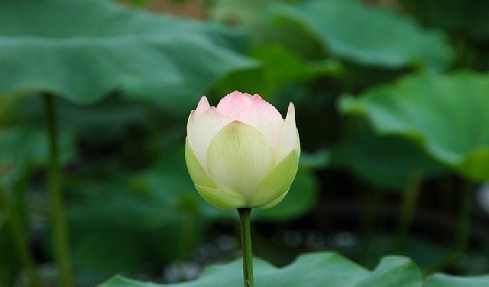Although freeing small fry or other beings that will not be killed in the near future is also liberating living beings, they are not lives saved at the point of being killed. To engender great merit and to be deemed a genuine form of fearless offering, lives saved should be those that are about to be killed such as the assorted fish sold in the marketplace.
[Excerpt from Luminous Wisdom Book Series 1: The Right View ~ Liberating Living Beings]
WORDS OF WISDOM
If Mahayana Buddhism is against eating meat, why do some of the Tibetan practitioners eat meat? It is not because the scriptures gave them permission to do so, but for other reasons. As you all know, most of the Tibetan Plateau is unsuitable for growing vegetables and rice. In the area where it is possible to grow crops, the yield is very low. And lacking sufficient transport facilities makes it difficult to have contact with the outside world. Especially in the pastoral areas, there is only tsampa (roasted ground barley) if people do not eat meat.
[Excerpt from Luminous Wisdom Book Series 1: The Right View ~Why Vegetarian?]
There are three kinds of generous offering practiced by the bodhisattvas: fearless offering, offering of Dharma and of material items.
[Excerpt from Luminous Wisdom Book Series 1: The Right View ~ Liberating Living Beings]
While it is a fact that some practitioners in Tibet eat meat, it does not mean that all Tibetan practitioners do or that the scriptures condone this behavior. One cannot find anywhere in either the Mahayana sutras or the Vajrayana tantras that deem meat eating acceptable. One thing does worry me though. Some practitioners from China who used to be vegetarian went to Tibet to study Vajrayana. Instead of learning the essence of Tibetan Buddhism, they adopted the bad habit of consuming meat, even to the point of being excessive sometimes. They believe this is the way of real Vajrayana, and that as a yogi of Vajrayana, eating meat is only right and natural.
[Excerpt from Luminous Wisdom Book Series 1: The Right View ~Why Vegetarian?]
Many people are convinced that what they practice must be of supramundane nature. How can it not be if they have been practicing the five extraordinary preliminaries? In fact, these five preliminaries are not only supramundane in nature but also part of the Mahayana practices. The key is, notwithstanding, having what kind of perspective when you sit down to practice these preliminaries. Though the possibility of practicing solely for the benefit of this life is slim, it is quite likely to undertake these practices to avoid rebirth in the hell realm. If the motivation is not to seek liberation for the sake of all sentient beings, the practice of the five preliminaries will be considered mundane, not supramundane. In that case, it won’t be so meaningful to practice the five preliminaries after all.
[Excerpt from Luminous Wisdom Book Series 1: The Right View ~ The Three Differences]
Our life comes to a crossroads when we realize that the world is full of illusion. We can either live in this world endlessly without any further investigation—we call this “samsara”—or, if we are fed up with this illusory world, we need to change the way we see it to the Buddhist view.
The Buddhist view of this world brings us loving kindness and wisdom. With compassion and wisdom, we are able to balance our life in terms of money, relationships, marriage and everything else, and with certain kinds of practice and mind training, we can ultimately attain enlightenment.
[Excerpt from Luminous Wisdom Book Series 1: The Illusory World]
While there is no risk of being caught again, but the living beings cannot live long anyway, should we still liberate them? Yes, we should, as we can never find a place for them to live forever. Our top priority should be to release them from the immediate danger of death before all other considerations.
[Excerpt from Luminous Wisdom Book Series 1: The Right View ~ Liberating Living Beings]
Many people consider Buddhism as idealism, because everything in this world is a reflection of our mind. It is not true, although most of other religions in the west are idealism but not Buddhism. On the other hand, Buddhism is neither materialism. Although we may find Buddhism may be partial materialism or idealism, but it is neither in general. Materialism and Idealism belongs to a certain category of western philosophy, but it can not include all the human knowledge.
Buddhism believe the world is neither consist of material or immaterial, it is an illusion created by our mind.
[Excerpt from Luminous Wisdom Book Series 1: The Illusory World]
If we can perform properly every time, liberating lives can also be fully endowed with the remarkable quality of the six paramitas, even to liberate just a single life.
[Excerpt from Luminous Wisdom Book Series 1: The Right View ~ Liberating Living Beings]











